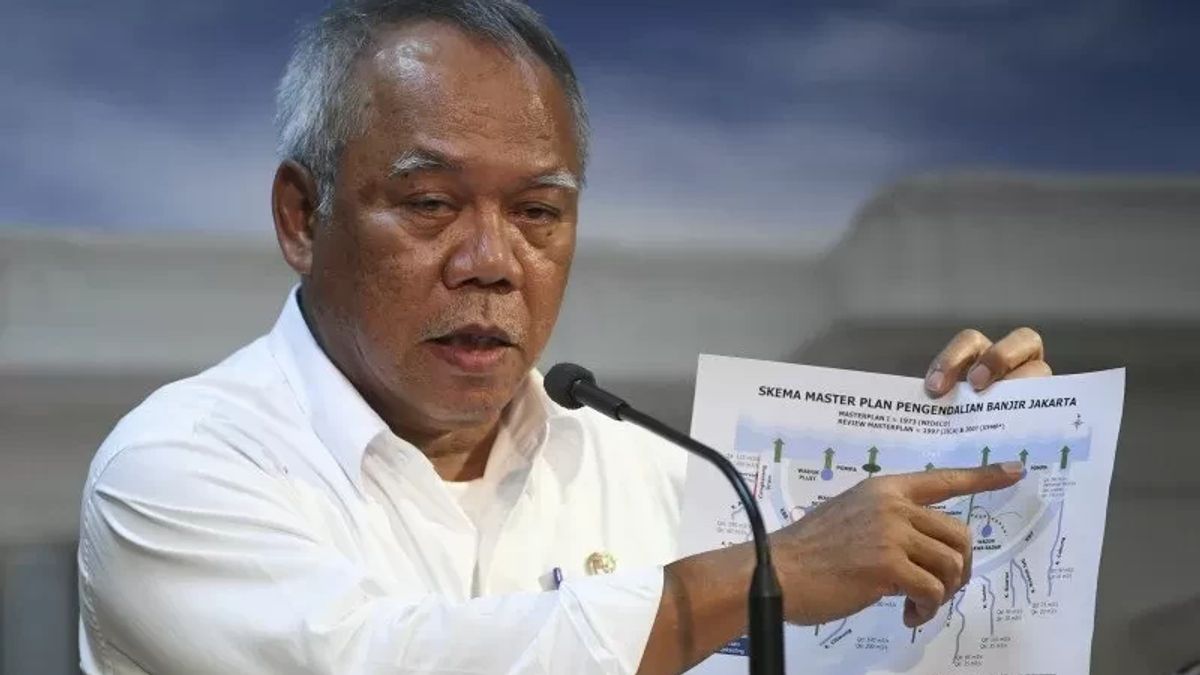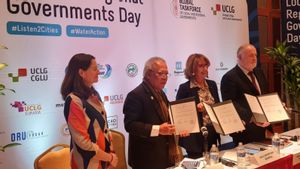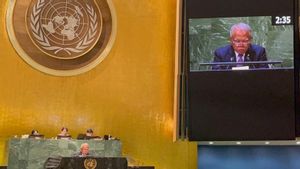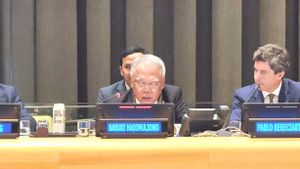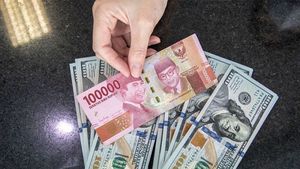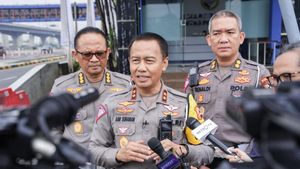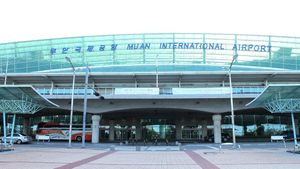JAKARTA - The Minister of Public Works and Public Housing (PUPR) Basuki Hadimuljono said, Indonesia to provide access to drinking water and proper sanitation for all people faces various big challenges.
Starting from urbanization, climate change, water scarcity at certain times and regions, and regional fiscal limitations, to the COVID-19 pandemic which has been going on for about three years.
"Currently, the Government of Indonesia has aligned the SDGs targets with the 2020-2024 National Medium Term Development Plan (RPJMN) to realize 100 percent access to drinking water and sanitation," said Minister Basuki in his official statement, Friday, March 24.
"Currently, the coverage of drinking water services has reached 91.05 percent and access to sanitation has increased by 80.92 percent," he added.
To achieve this target, the Government of Indonesia through the Ministry of PUPR has made various efforts to accelerate it, such as building drinking water supply infrastructure by utilizing 61 new dams to increase water service capacity.
Then, the construction of drinking water supply infrastructure to support National Priority Areas, such as the Tourism Areas in Kali Dendeng and Labuan Bajo, and the Industrial Area in Batang.
The PUPR Ministry is also trying to increase human resource capacity in the field of water supply management by developing a special master's program in collaboration with partner universities.
Then, integration of sanitation services by combining on-site and off-site systems, or inclusive sanitation for all areas to ensure the provision of drinking water services is accessible to all people.
"Involving the community, the Ministry of PUPR through the Community-Based Water Provision (Pamsimas) and Community-Based Sanitation (Sanimas) Program from 2008 to 2022 has succeeded in supporting the provision of clean water and sanitation in 37 thousand villages spread across 408 districts and cities," explained Basuki.
In responding to digital transformation and improving the performance of clean water supply by PDAMs, the Government of Indonesia has carried out technological innovations such as the application of Supervisory Control and Data Acquisition (SCADA), as well as waste management technology through the conversion of waste into energy.
Finally, to overcome limited funds, the Ministry of PUPR also invites the participation of the private sector in the development of the Drinking Water Supply System (SPAM) through alternative funding, such as Public Private Partnership or Public Private Partnership (PPP).
اقرأ أيضا:
Through the 2023 UN Water Conference, Basuki also invited all delegates to attend the 10th World Water Forum (WWF) which will be held in Bali, Indonesia, in 2024.
"This conference is a milestone for us in raising awareness of the importance of water in life which will also be discussed further on the agenda of the 10th World Water Forum (WWF) in Bali, Indonesia," he said.
Basuki also hopes that there will be collaboration and cooperation between countries in overcoming various global problems regarding drinking water and sanitation.
"Through this forum, Indonesia can also share experiences, challenges, and practices, including the potential for cooperation in the use and management of water resources, so as to create livable and inclusive livelihoods for the people of Indonesia and the world," he added.
The English, Chinese, Japanese, Arabic, and French versions are automatically generated by the AI. So there may still be inaccuracies in translating, please always see Indonesian as our main language. (system supported by DigitalSiber.id)
